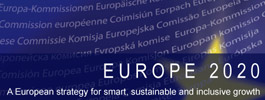By Paola Testori Coggi, Director-General for Health and Consumers, European Commission

When preparing its policy and proposals relating to consumer safety, public health and the environment, the Commission relies on independent Scientific Committees to provide it with sound scientific advice and to draw its attention to new and emerging problems. These opinions are vital for policy makers to ensure the highest level of health and environmental protection that European citizens expect from the European Union institutions.
Since 1978, the following Committees: Scientific Committee on Consumer Safety (SCCS), Scientific Committee on Health and Environmental Risks (SCHER), and Scientific Committee on Emerging and Newly Identified Health Risks (SCENIHR) have adopted more than a thousand scientific opinions, most of which have served as a basis for regulations, contributing to a more evidence-based EU policy-making.
These Scientific Committees, whose members include eminent scientists from all over the world, review and evaluate scientific data in order to assess potential risks in areas such as:
- the safety of numerous cosmetic ingredients (in hair dyes, perfumes, sun beds, UV filters)
- the potential risks of fluoride in drinking water
- the safety of dental amalgam and alternative dental restoration materials
- nanomaterials
- the addictiveness and attractiveness of tobacco additives

Other opinions address the health effects of:
- electromagnetic fields
- security scanners for passenger screening
- exposure to mercury in certain energy-saving light bulbs
-
the environmental and health risks posed by depleted uranium

More recent work has focused on medical devices, such as the safety of PIP silicone breast implants and metal in hip replacements, the possible health risks of chemicals (phthalates) used in children's toys and childcare articles and the health effects of mobile telephones and personal music players.
The European Commission recently selected new members for the Scientific Committees. At the first plenary meeting in Luxembourg, on 11 and 12 April 2013, the newly appointed scientists ![]() will be officially welcomed by the European Commission and the Government of Luxembourg.
will be officially welcomed by the European Commission and the Government of Luxembourg.
Three basic principles govern EU policy on scientific advice and the work of these Committees: excellence, independence and transparency. An open way of functioning is in place to continually attract the best scientists and to encourage more dialogue with stakeholders, with the aim of catalysing debate and facilitating the exchange of information.
At the same time, a robust set of internal mechanisms is applied to safeguard the independence of the scientific work and to prevent the risk of influence from economic, social or other non-scientific grounds. Particular attention is given to communicating the results of the work of the Scientific Committees thus ensuring that their conclusions are known to both the scientific community and the stakeholders.
The ultimate goal is to guarantee European citizens a high level of health protection and, at the same time allow science and innovation to play a key part in encouraging competitiveness and economic growth in Europe, thus contributing to the achievement of Europe 2020 objectives for a smart, sustainable and inclusive growth.







